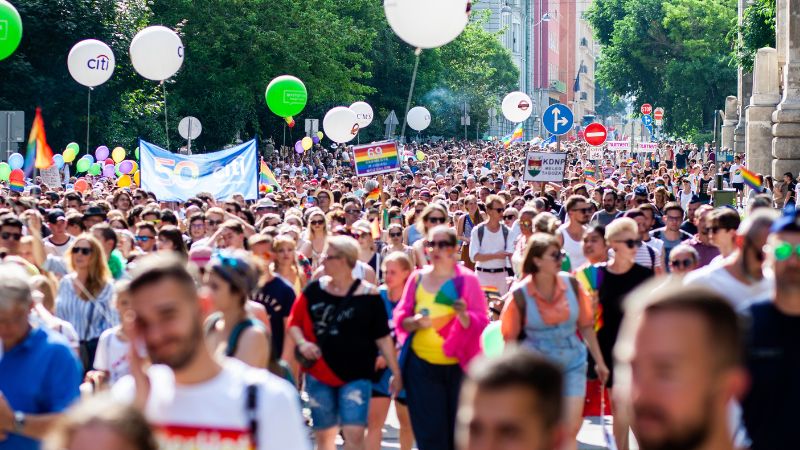Hungary has used its newly approved constitutional power to ban a LGBTQ pride march for the first time.
The amendment declares that children’s rights to moral, physical and spiritual development supersede any right other than the right to life, including that to peacefully assemble.
It follows the country adopting laws which prohibit the “depiction or promotion” of homosexuality to minors. The laws are similar to those introduced in Russia.
Local activists are determined to push ahead with the 30th Pride Parade in Budapest on 30th June, despite the government ruling it an illegal gathering. The new laws also allows the government to use facial recognition software to track down people who attend.

It comes as there is growing pressure on the European Union to take action on the country because the laws do meet the standards for EU member nations.
Sixteen member nations have now signed a letter calling for action to be taken.
“We are highly alarmed by these developments which run contrary to the fundamental values of human dignity, freedom, equality and respect for human rights,” reads the letter which has been seen my media organisations. It is signed by France, Germany, Austria, Belgium, Czechia, Denmark, Estonia, Finland, Ireland, Latvia, Lithuania, Luxembourg, the Netherlands, Portugal, Slovenia and Sweden.




